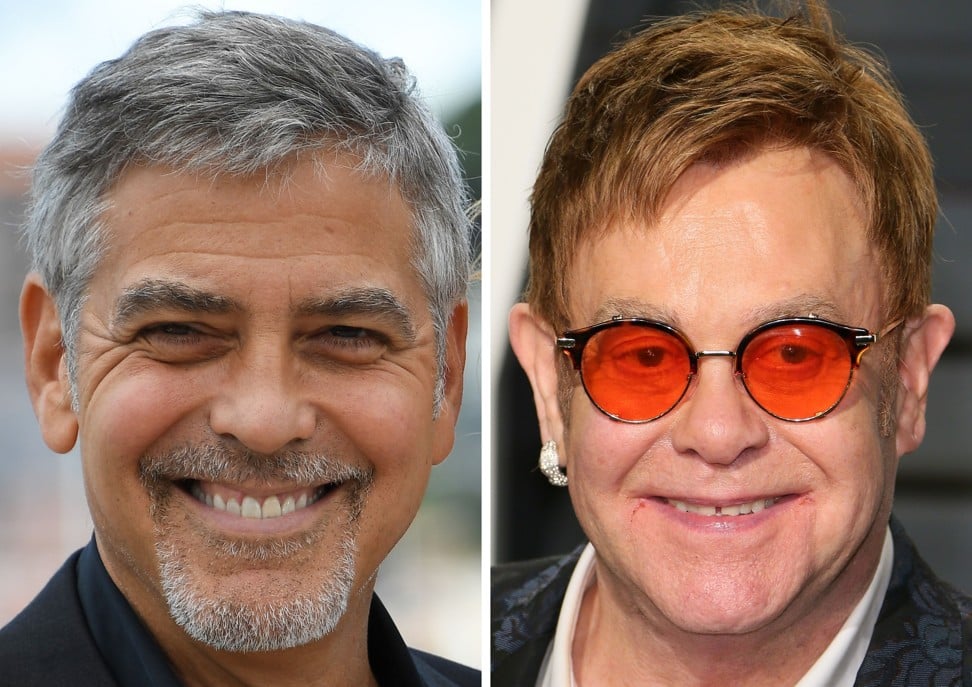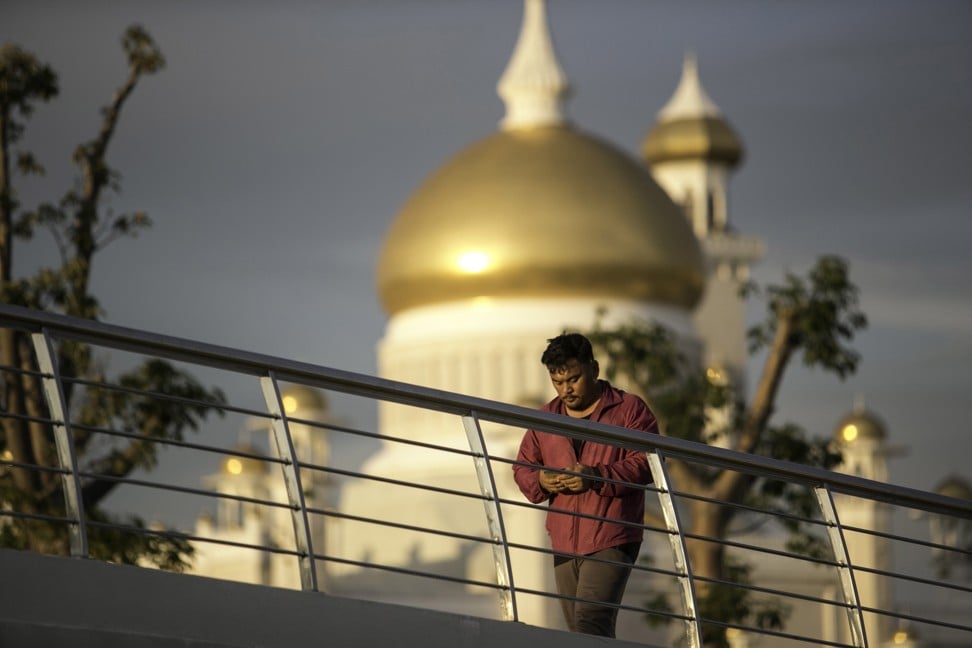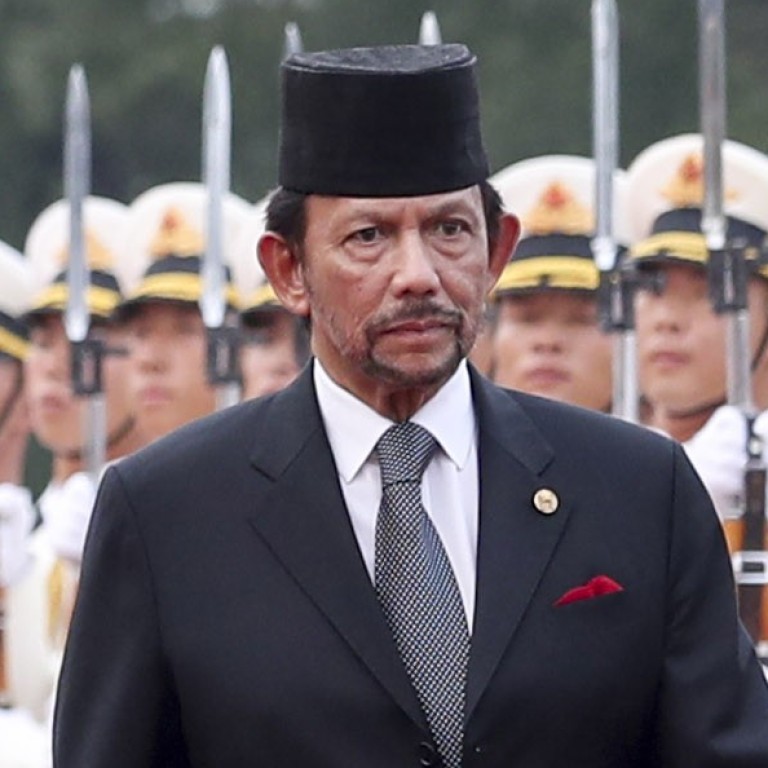
West sends Brunei into China’s arms with outrage over its anti-gay sharia laws
- As oil reserves run out, Brunei looks to China to back critical development projects as it faces Western censure over sharia laws many say are only for show
- At the same time, predominantly-Muslim nation is using the tough laws to shore up support from a populace facing rising unemployment
From celebrities to ministers, condemnation from the West has been heaped on Brunei for enacting harsh anti-gay laws that prescribe death by stoning for various offences – but the tiny oil-rich nation has showed little concern it may be making foes of its traditional friends.
Neither is it likely to fully alienate the West, observers say, despite remaining resolute on the implementation of sharia law in the face of backlash from world leaders.
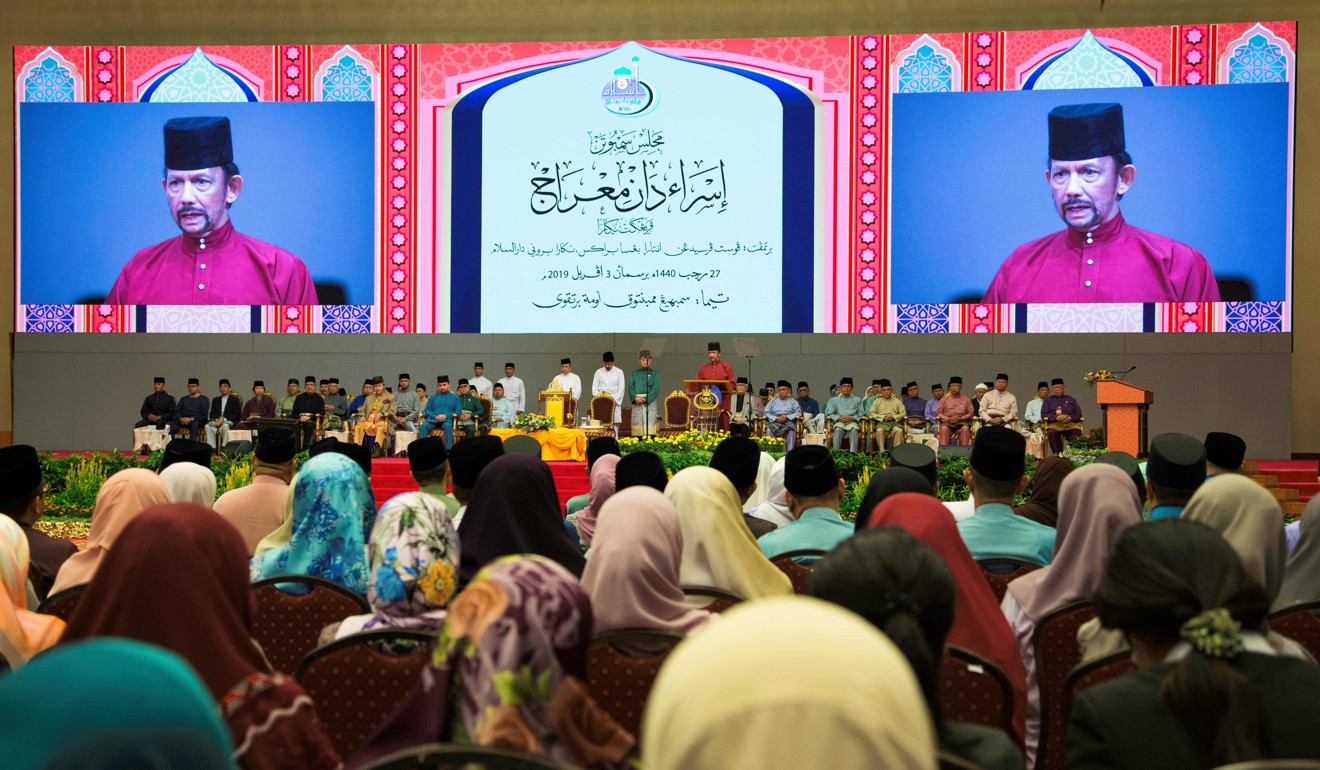
“Brunei has been practising hedge diplomacy in its foreign policy,” says Mustafa Izzuddin, a fellow at Singapore’s ISEAS-Yusof Ishak Institute. “However, the greater the criticism from Western countries – including resorting to boycotts – the more likely Brunei will turn to Asia and in particular, China, which has cleverly stayed clear of Brunei’s domestic affairs.”
The greater the criticism from Western countries – including resorting to boycotts – the more likely Brunei will turn to Asia and in particular, China.
While Beijing has yet to propose any concrete plans, similar attempts to forge deals with other South China Sea claimants suggest it would “not be surprising to see China offer joint development prospects to Brunei”, says Joseph Liow of the S Rajaratnam School of International Studies.
But if joint agreements are signed, it could prove problematic for other Southeast Asian claimants and the wider international community as it would undercut the 2016 international ruling that says China has no claims to the waters delineated by its controversial nine-dash line, says Gregory Poling, director of the Asia Maritime Transparency Initiative.
Brunei’s adoption of hardline sharia laws signals turn away from West: observers
If China manages to strike a development deal with Brunei, it would indicate Brunei’s EEZ waters were legally “disputed”, strengthening Beijing’s claim and weakening near-universal consensus of the ruling, says Poling. However, there is still “no evidence Brunei is willing to take that gamble”, he says.
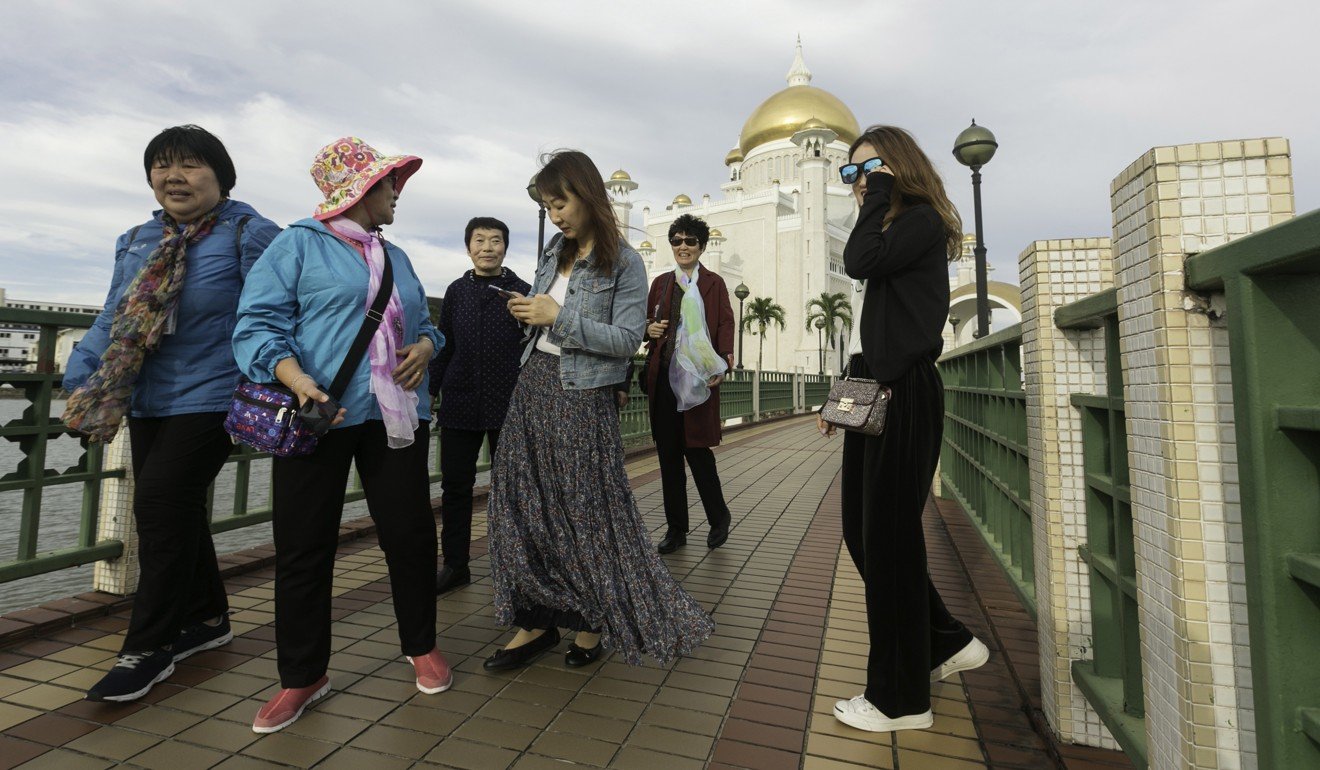
Most of Brunei’s large-scale infrastructure deals – including dams, roads, and the Muara Port – are financed by China under the Brunei-Guangxi Economic Corridor plan. Beijing has so far poured US$4 billion into the economy and pledged a further US$12 billion for an oil and gas refinery.
Why China is coming to Brunei’s aid as its oil slowly runs out
Alongside the development plans, the economic woes have also encouraged Sultan Hassanal Bolkiah to toughen sharia laws to bolster support from Brunei’s 438,000 citizens, of whom almost 80 per cent are Muslim.
Although many Bruneians believe stoning is unlikely to be carried out – the country has not used the death penalty since the 1950s, according to Amnesty International – they say the use of religion to normalise homophobia and keep citizens in check is worrying.
“The biggest concern for me is not the punishment, it’s that religion is used as a basis for it. In my current situation, I am not afraid [of being stoned] at all. But I do wish to leave Brunei due to economic decline and the possible worsening of homophobia,” says Hilman, a 19-year-old gay Bruneian. “If it becomes dangerous for LGBT, I would consider leaving.”
Brunei’s LGBT residents struggle with dating and religion, amid new death by stoning law
Although citizens say Brunei is largely comfortable, being a tax haven with free education, health care and subsidised housing, younger Bruneians frustrated with poor employment opportunities have left.
Sarima Sharif* moved to the UK several years ago as it was easier to get a job in London.
“Brain drain is real back home, I’ve had friends who were unemployed for months to a year since there were no vacancies in the government or in the private sector and if there were, the positions were highly competitive,” she says.
Jean Chong, an LGBT activist from Singapore NGO Sayoni, says some Bruneians have expressed an interest to leave because of the anti-gay laws, but many were taking a wait-and-see approach.
“I wouldn’t say it’s that many, just two or three, as well as three people already based in Singapore [who would stay permanently],” she says, adding that as Brunei and the Lion City share a currency, it is easier for people to relocate there.
“Many Bruneians are fairly well educated due to the free education from their government, so it is an option to consider. They can stay until things are better or take time out to observe what is happening in Brunei,” Chong says. “Are people getting stoned? Are women getting raped? Or is the law just symbolic?”
Although Brunei is nothing like Saudi Arabia, says Chong, strict sedition laws limiting freedom of speech mean that things can “get very, very bad if you speak up against the government”.
Golden jubilee: Brunei celebrates 50 years at throne for sultan of bling
The anti-free speech laws are a problem, says a Bruneian queer activist who was previously charged with sedition – possibly a greater one than the sharia enactments.
“I just don’t see the stoning happening. And I am out, I have supportive family and friends,” said the activist who declined to be named.
“There doesn’t seem to be any difference [in discrimination levels] so far, but of course it may take a while. The bigger issue which the West is missing in its boycott talk is how homophobia will slowly become more acceptable over time.”
Amid fears the laws would breed an environment of increased prejudice towards the local LGBT community, other groups such as migrants and stateless people in Brunei are also vulnerable, says Brunei-born human rights and refugee law specialist Suraj Girijashanker.
Brunei has a large population of Southeast and South Asian migrants, mostly domestic workers and oil rig labourers. As of 2016, there were also 20,524 stateless people in Brunei.
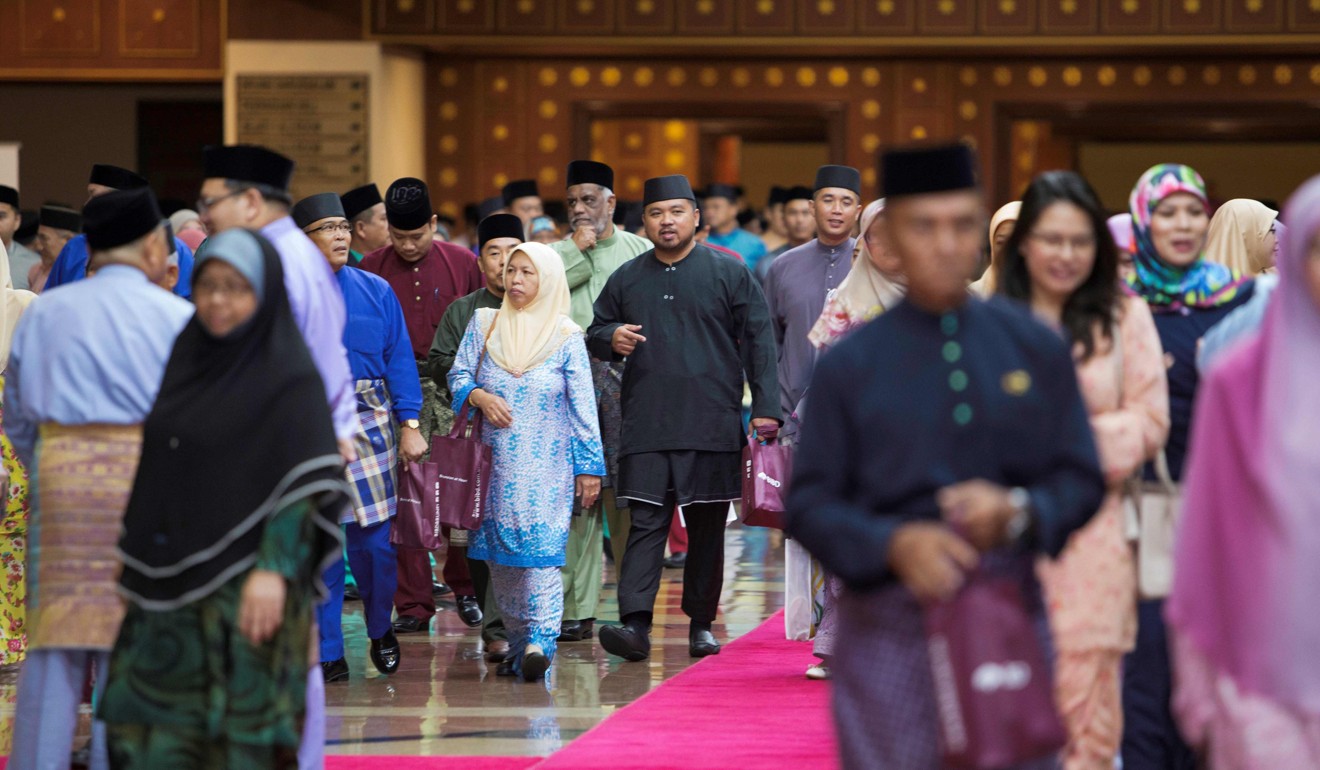
As locals grapple with the new laws and a contracting economy, the international condemnation and calls for a boycott or economic sanctions have not been helpful for the Bruneian LGBT community, says Suraj.
“Responses to the sharia code and human rights violations in Brunei need to keep the relationship between China and Brunei in mind. China can inject investment into the economy, which Brunei desperately needs,” Suraj says. “A boycott of a few luxury hotels is not going to bring about legal change, as these hotels contribute a fraction of Brunei’s GDP.”
Meanwhile, framing the boycott as being just about anti-gay laws could lead to repercussions against LGBT Bruneians.
“Calls for boycotts are mostly led by Western people and organisations based in the global north, who often have very little understanding of what the situation in Brunei is like, and have really made little effort to place the voices of Bruneians or regional activists at the forefront,” said Brunei-born Suraj.
It is, he says, still “too early” to accurately assess whether life in Brunei has changed, despite many Bruneians dismissing the risks.
“It is an attempt to consolidate power, and who knows in which direction it will head. People who feel they won’t be impacted by these set of laws today may be impacted by new laws tomorrow.” ■


